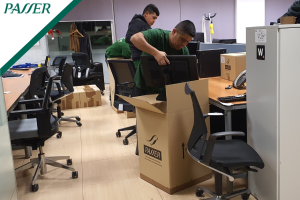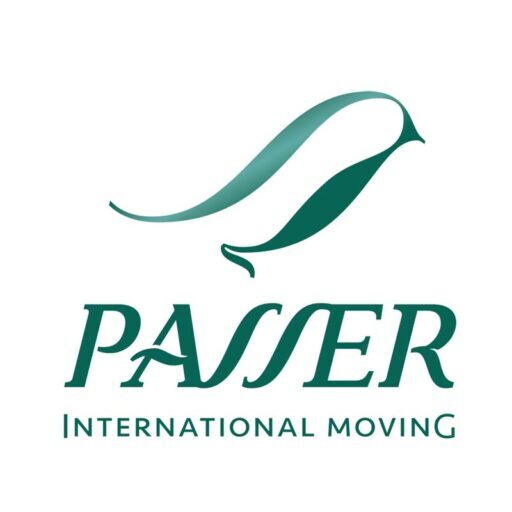Moving to Germany: Complete Guide for a Successful International Move
Moving to another country can be a big challenge, especially when it comes to a country like Germany, with its own culture, regulations and requirements. To make a moving to germany To ensure that your international move is hassle-free, careful planning is essential. In this article, we provide you with all the information you need to prepare your international move effectively.
Step 1: Planning and Pre-Preparations
Before you start moving, it is essential to have a detailed plan that covers all the stages of the process, from initial preparation to arrival in Germany. Below are the main aspects to consider:
Check Documentation and Permits
Documentation is key when it comes to a international moving. Make sure you have all the necessary documents in order:
- Valid passport: Check that your passport is up to date and has sufficient validity.
- Visa or residence permit: Depending on the length of your stay and the reason (work, studies, etc.), you may need a specific visa.
- Registration at the Bürgeramt (registration office): Once in Germany, you must register at the Bürgeramt in your city of residence within the first 14 days.
Search for housing in Germany
Before moving, it is advisable to look for a place to live. There are portals such as Real EstateScout24 either WG-Gesucht to rent apartments or shared rooms. Consider factors such as location, price and proximity to public transport.
Choosing an International Moving Company
To ensure that everything arrives in good condition, choose a shipping company. international moving specialized in transfers to Germany, such as Passermoving, which can take care of all the logistics and transportation of your belongings.
Services of an International Moving Company
Some of the tasks that a professional company can handle include:
- Packing and unpacking of furniture and fragile items.
- Safe transportation of your belongings by road, air or sea.
- Customs management to avoid problems at border crossing.
Step 2: Prepare Belongings for Moving
Get Rid of What You Don't Need
Moving to another country is the perfect opportunity to do some housecleaning. Assess what items you really need to take with you and consider selling, donating or recycling items that are no longer useful.
Packing Effectively
Proper packaging is essential to protect your belongings during the move. Use sturdy boxes and protective materials like bubble wrap to pack fragile items and delicate furniture. Label each box with its contents and the room it belongs in for easy unpacking.
List of Belongings
Make a detailed inventory of all the items you plan to move. This will help you keep track of your belongings and will be useful in case you need to file a claim.
Transportation and Customs Considerations
International transport to Germany can be carried out by different means: land, sea or air. Each option has its own particularities and costs.
- Land transport: Ideal for transfers within Europe. It is cheaper and faster.
- Maritime transport: Recommended if you have a large volume of belongings, although it takes longer.
- Air transport: The fastest option, but also the most expensive. Ideal for essential and urgent items.
When clearing customs, it is important to present the appropriate documentation and be aware of import restrictions on certain products, such as food, plants or animal products, into Germany.
Step 3: Adaptation and Arrival in Germany
Registration at the Bürgeramt
As we mentioned above, upon arrival in Germany you must register at the Bürgeramt in the city where you will be residing. This step is mandatory and must be completed within the first two weeks. You will need to present:
- Passport.
- Rental agreement or letter from the landlord.
- Registration form.
Opening a Bank Account
Opening a bank account in Germany will allow you to manage your payments and receive your salary. The most common banks are: Deutsche Bank, Commerzbank and N26Most banks require your registration number and a local address.
Health Insurance and Social Security
Germany requires all residents to have health insurance. If you are an employee, your employer can help you with this. Make sure you have adequate insurance from day one to avoid penalties.
Step 4: Cultural Adaptation and Daily Life
Moving to a new country means adapting to a new culture and lifestyle. Germany has a high quality of life, but it is important to know its particularities for a faster integration.
Learn the Language
Although many people in Germany speak English, it is useful to learn at least the basics of the German language to facilitate daily communication. There are multiple options, from in-person classes to online courses.
Know the Local Rules and Customs
Germany is a country with many specific rules and customs. Punctuality, respect for silence and organisation are highly valued characteristics. Adapting to these customs will help you integrate more easily.
Conclusion
Make a moving to germany requires careful planning and attention to detail. From preparing the paperwork and hiring an international moving company to settling into the new environment, every step is crucial to ensuring a successful transition. If you need help with the process, Passermoving offers comprehensive international moving services to make your move as easy and efficient as possible.
Do you need to make a move? we can help you
At Passer we are always willing to collaborate









